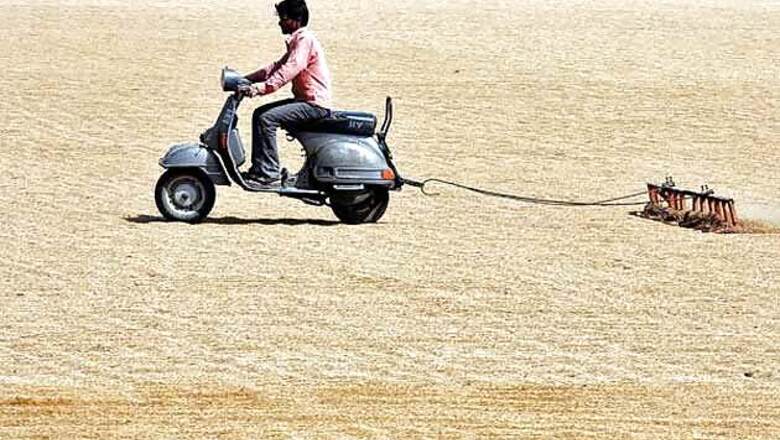
views
Coonoor (Tamil Nadu): Commodity planters in south India on Friday sought government help for greater mechanisation to reduce production costs and tackle an acute labour shortage. "The government should allocate substantial funds for mechanisation in the sector to overcome labour shortage and reduce cost of production," United Planters' Association of South India (Upasi) president D. Hegde said at a conference here.
Admitting that more research was required to develop indigenous technology for plantation crops, Hegde said the government should restore the concessional duty on import of all machinery and equipment used by 1.6 million planters and growers across the country. "The government should provide concessional duties till domestic suppliers develop suitable machinery," Hegde said in his presidential address at the 119th annual conference of Upasi.
The federal government last year restricted the concessional duty on the import of specified machinery used only in coffee plantations. The plantation sector comprises coffee, tea, rubber and spices (especially cardamom and pepper), and provides employment to around 1.4 million people in the three southern states of Karnataka, Kerala and Tamil Nadu.
However, socio-economic factors are forcing labourers to migrate to greener pastures, and work on the plantation is no longer so attractive for the younger generation. "Labour shortage is acute, especially during plucking season in coffee plantations and peak crop period (May-June and Oct-Nov) in tea plantations. In spite of substantial increase in wages with social benefits, we are unable to attract the required workforce, so we are forced to go in for greater mechanisation," Hegde said.
Runaway inflation, the high interest rate, doubling of fertiliser prices and increasing overheads, including logistics, make the capital-intensive plantation sector unviable, as there is a mismatch between production cost and selling price of commodities. "In case of tea, production cost has shot up seven times, because of increasing wages and overheads. Prices, however, have only doubled in the last two decades. Fertiliser shortage is also fuelling the price rise," Hegde told Union Minister of State for Commerce and Industry Jyotiraditya M. Scindia, who presided over the conference.
Referring to recent amendments to the Employees Provident Fund (EPF) scheme, which mandates planters to deduct the PF amount if an employee is engaged even for a day, the outgoing president said migrant labour employed for seasonal operations object to the deduction, as they do not stick to one estate for long. "Though we appreciate social security measures for workers, there should be a minimum number of days (60) of employment for PF deduction, as was the case before the scheme was amended," Hegde said.
Ironically, the government's flagship programme, the Mahatma Gandhi National Rural Employment Guarantee Act, has no mandate to give PF to labourers engaged to work for 100 days in a year. "The burden of social cost on planters without commensurate relief in taxes or levies is telling on the sector's health and its economic viability, as the central and several state governments have not begun to share the cost, though an agreement to that effect had been made in principle during the 11th Five-Year Plan," Hegde said.
The value of the plantation commodities in last fiscal (2011-12) was Rs.41,442 crore (Rs.414 billion/$7.5 billion), with exports contributing Rs.9,532 crore (Rs.95 billion/$1.74 billion). South Indian planters contributed 77 percent to this value (Rs.31,817 crore/$5.8 billion) and accounted for 78 percent (Rs.7,394 crore/$1.34 billion) of total exports in value.


















Comments
0 comment